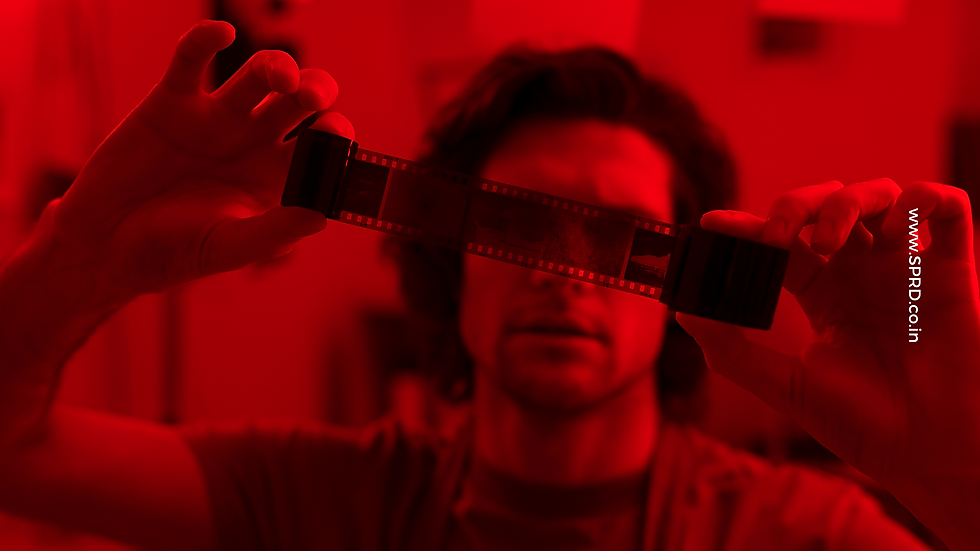Digital Strategy For Start-ups: What To Look Out For
- SPRD

- Aug 26, 2020
- 3 min read
Updated: Nov 23, 2023

The future is now, and it is digital. Since the lockdown, there has been a 100% increase in online sales in India.
Digital marketing is highly accessible to businesses of all shapes and sizes and media marketing plays a key role in shaping how audiences engage with brands. With online shoppers expected to reach over 200 million by 2025, start-up industries establishing their media marketing presence are using a more integrated approach.
But how do you market to an audience you don’t know?
Especially for start-ups, creating marketing and buyer personas is the first step towards answering this question! Everything from demographic details, the way the target audience researches products online, their go-to social media channels, and insights on solutions they need, make it easier for start-ups to focus on which marketing channels to use to connect brands to their audiences.
Successful innovative start-ups including Dropbox, Uber, Airbnb, and Whatsapp found a gap in the market and launched during or just after the global financial crisis of 2007-2008!
For thousands of start-ups, COVID-19 is a business opportunity. But the devil is in the details. There’s a massive difference between those with products that can truly help, such as online learning tools- and those that are simply looking to capitalize. For example, UiPath, a robotic processing automation company has put software robots to input data in a hospital in Ireland to save nurses hours each day on administrative tasks, leaving them more time for patient care.
The playbook for media marketing during COVID-19 has completely changed
To enable greater social distancing and maintain safety measures, start-ups are working overtime to reinvent themselves with existing staff and clients. Take, for instance, Zomato, who witnessed an immediate decline in business since people were concerned about food safety. A classic example of rolling with the punches, Zomato expanded its business by focusing on a small number of large marketing opportunities, while it also put in place measures to assure clients about the safety of its food.
Right from launching grocery and essential services ‘Zomato Market’ across 185 cities in India, they are also entering into the home delivery of alcohol.
Re-thinking ‘Business As Usual’
While this goes without saying, some industries chose to focus on overcoming short-term challenges with the hope that the economy would slowly inch back to normal. However, for the travel and tourism industry, all operations came to a grinding halt due to the large scale closure of borders and ban on flights.
In order stay connected with their consumers and provide income to their tour guides, tourhq.com quickly pivoted and introduced “tourHQ Online Experiences”- live, interactive experiences that allow customers to experience safari tours, immerse themselves in the local culture, music, dances, and handicrafts and travel as they normally would.
Optimizing Digital Strategy During COVID-19
Frankly speaking, for start-ups, elevating their digital strategy during the pandemic is crucial! Consumers within the 35-44 age bracket increased their internet consumption by 11% while millennials observed an average increase of 7%.
In the Nielsen Report on COVID-19’s impact on the changing landscape in media, leading platforms such as Facebook (+18%), Instagram (+20%), and Whatsapp (+17%) have all witnessed rises in the number of sessions per week per user.
Since audiences are spending an increased amount of time across social media platforms, start-ups can seize the opportunity to carve a niche for themselves in the media marketing world.
It is no secret that COVID-19 has pushed industries across the globe into a tight corner. Start-ups within the lifestyle, beauty, and fashion space are aggressively advertising on Instagram to drive traffic to their website and boost sales. With COVID-19 transforming the way search engines work, brands would benefit from investing in agencies in a bid to boost their search results, enhance media marketing, gain visibility, and curate innovative content.
But the bottom line is, only about 1% of startups evolve into a unicorn startup like Uber, Airbnb, and Slack.
It’s evident that only by pulling in the media marketing experts to do the heavy lifting and leverage their strengths, can brand determine the effectiveness of their ad spend, target the right audience and evolve into a start-up to be reckoned with.
This article was first published on Media Catalyst.



Comments